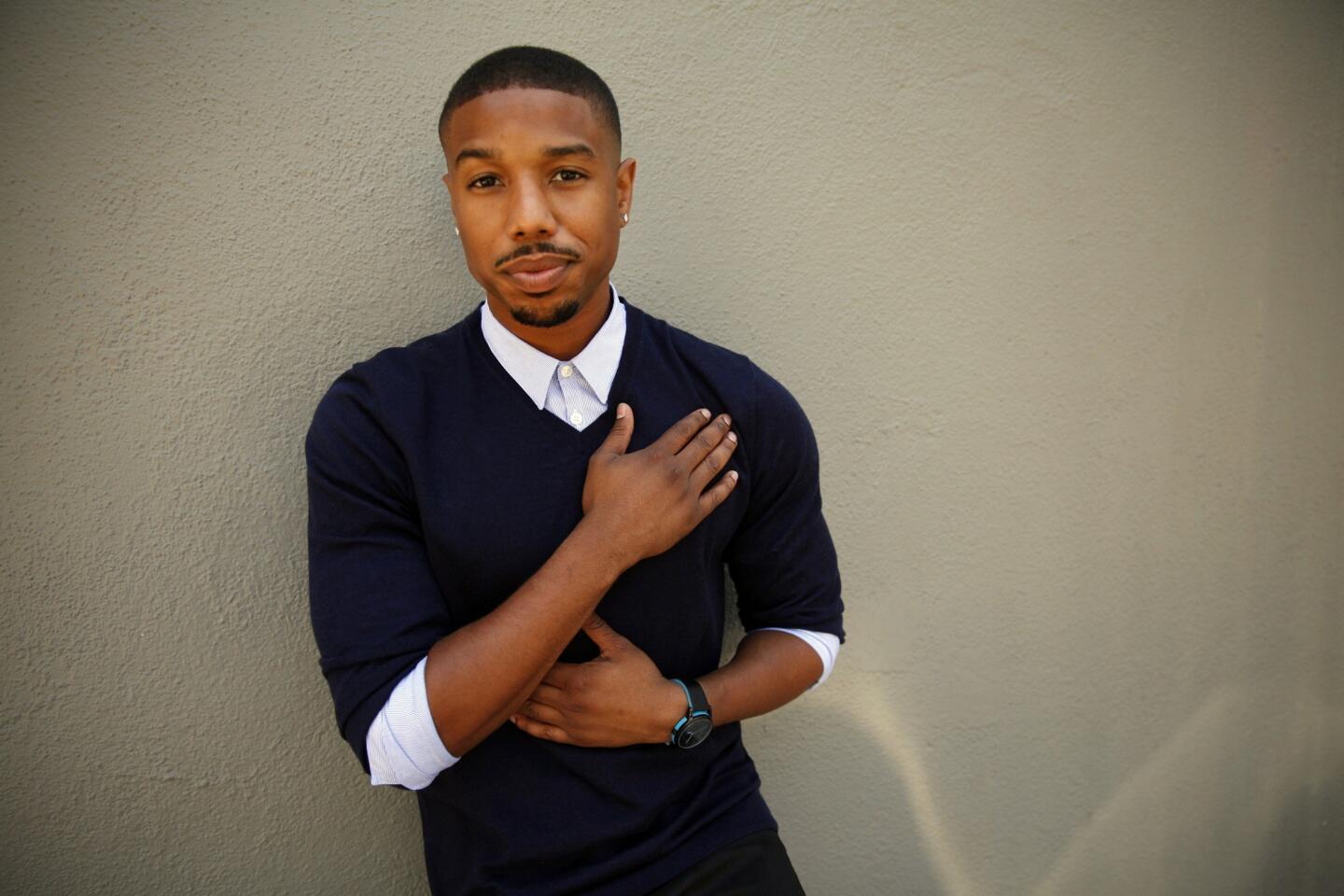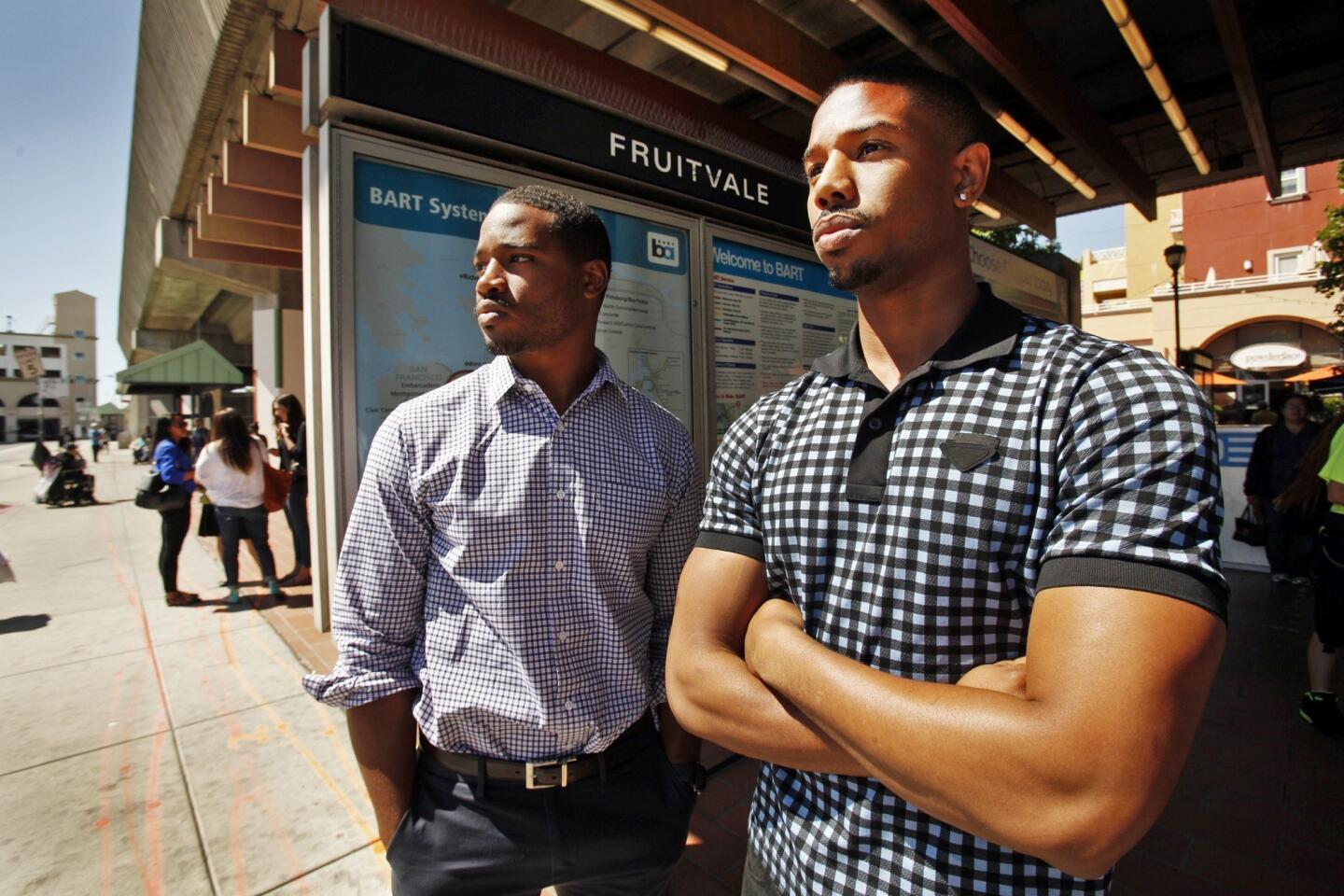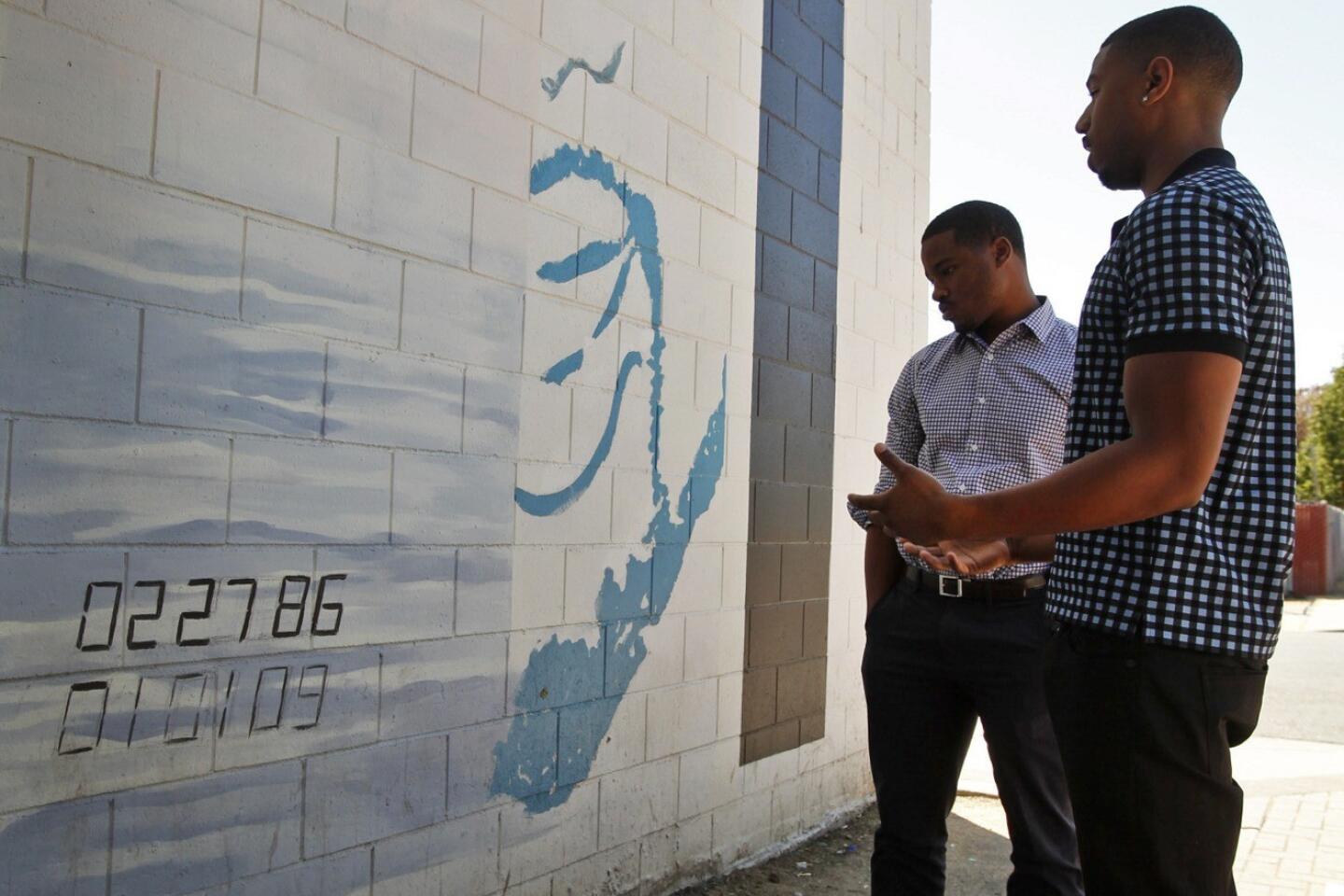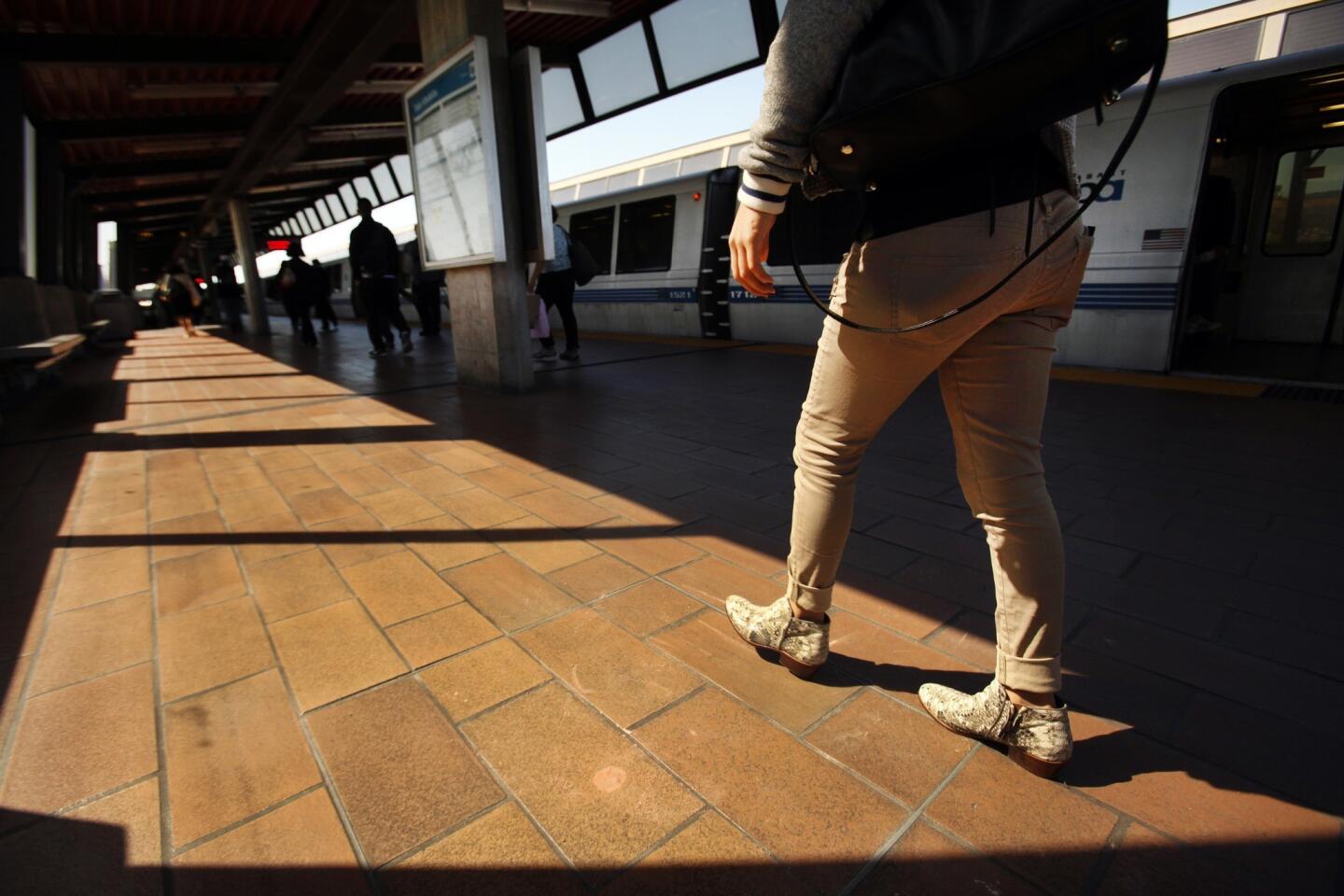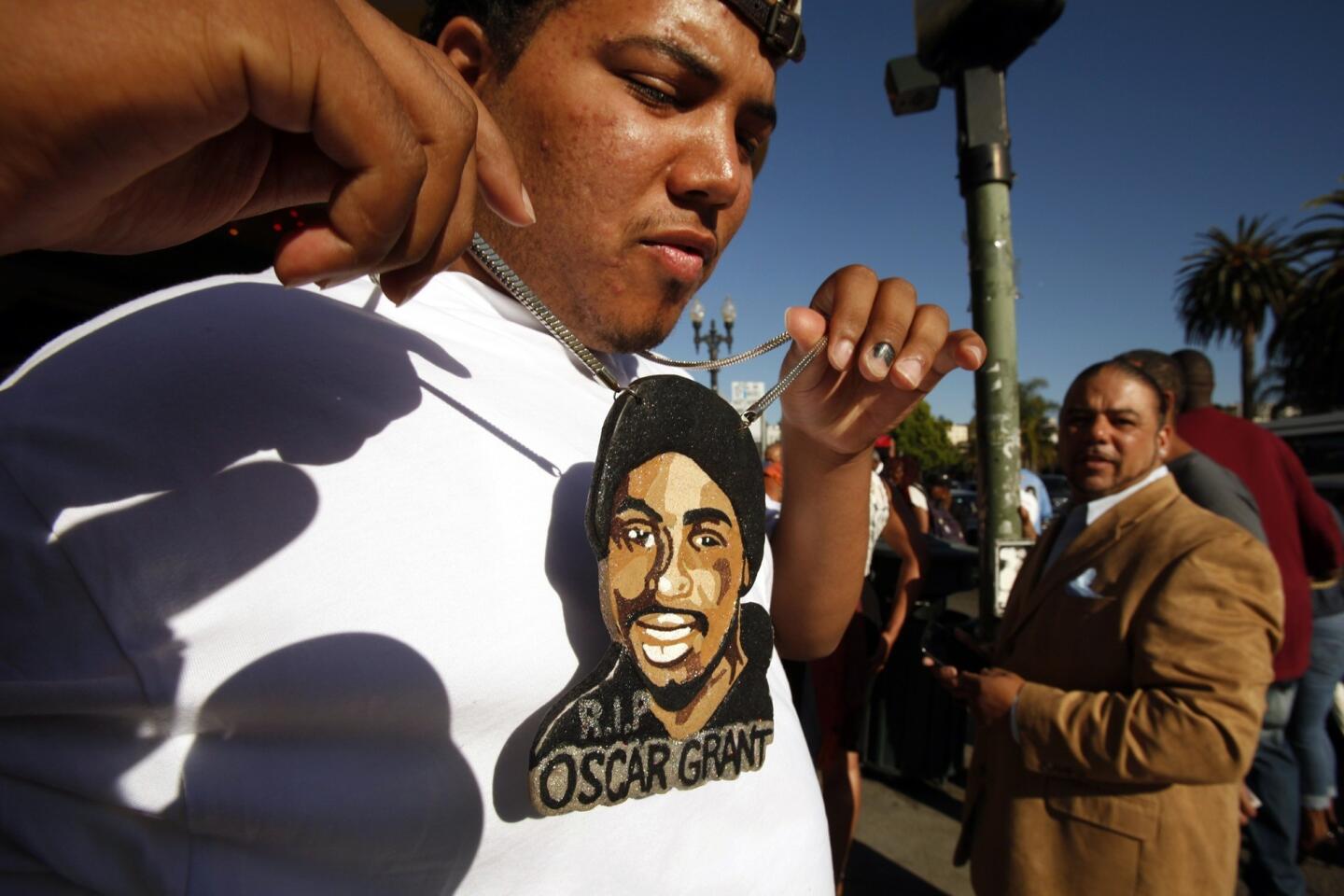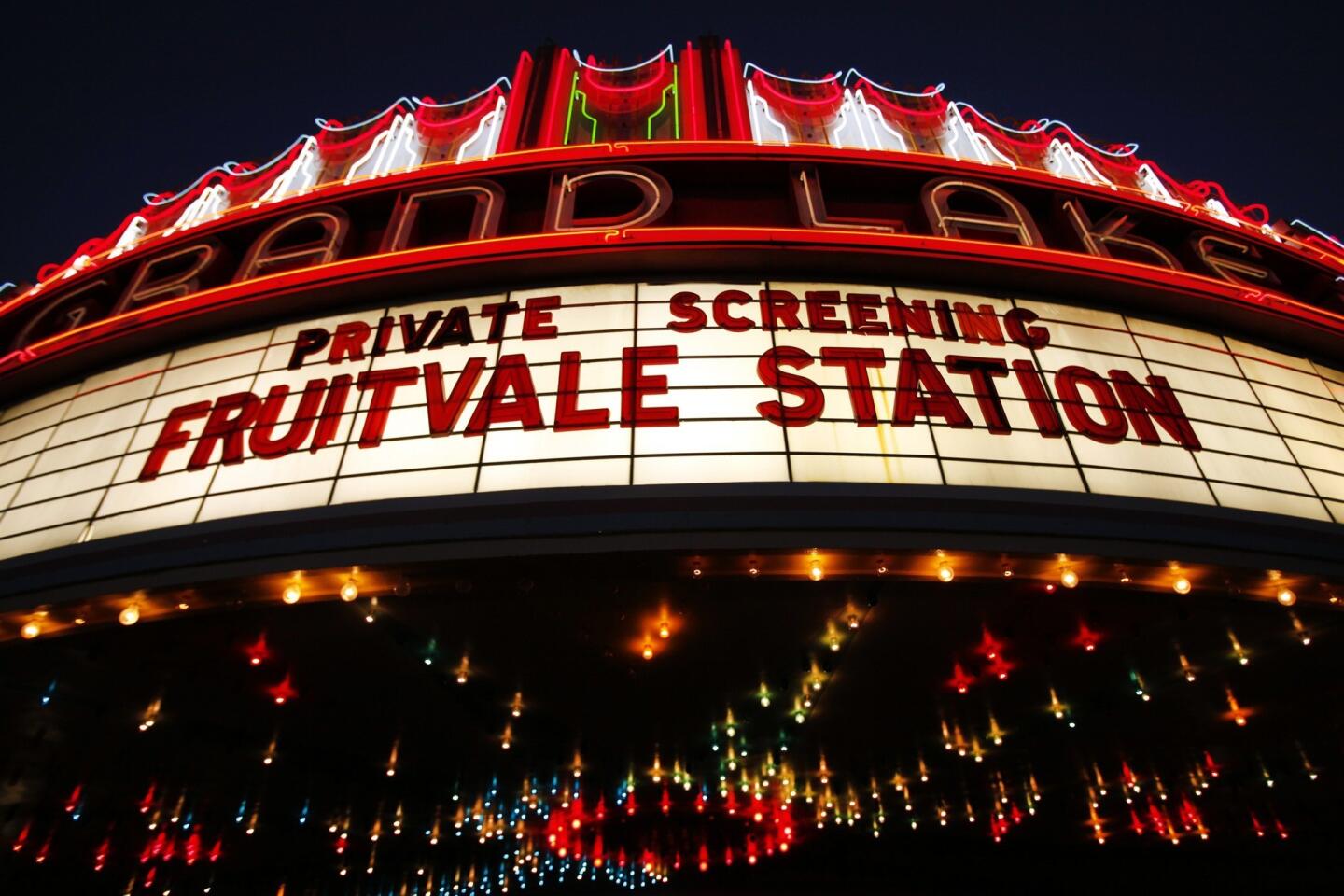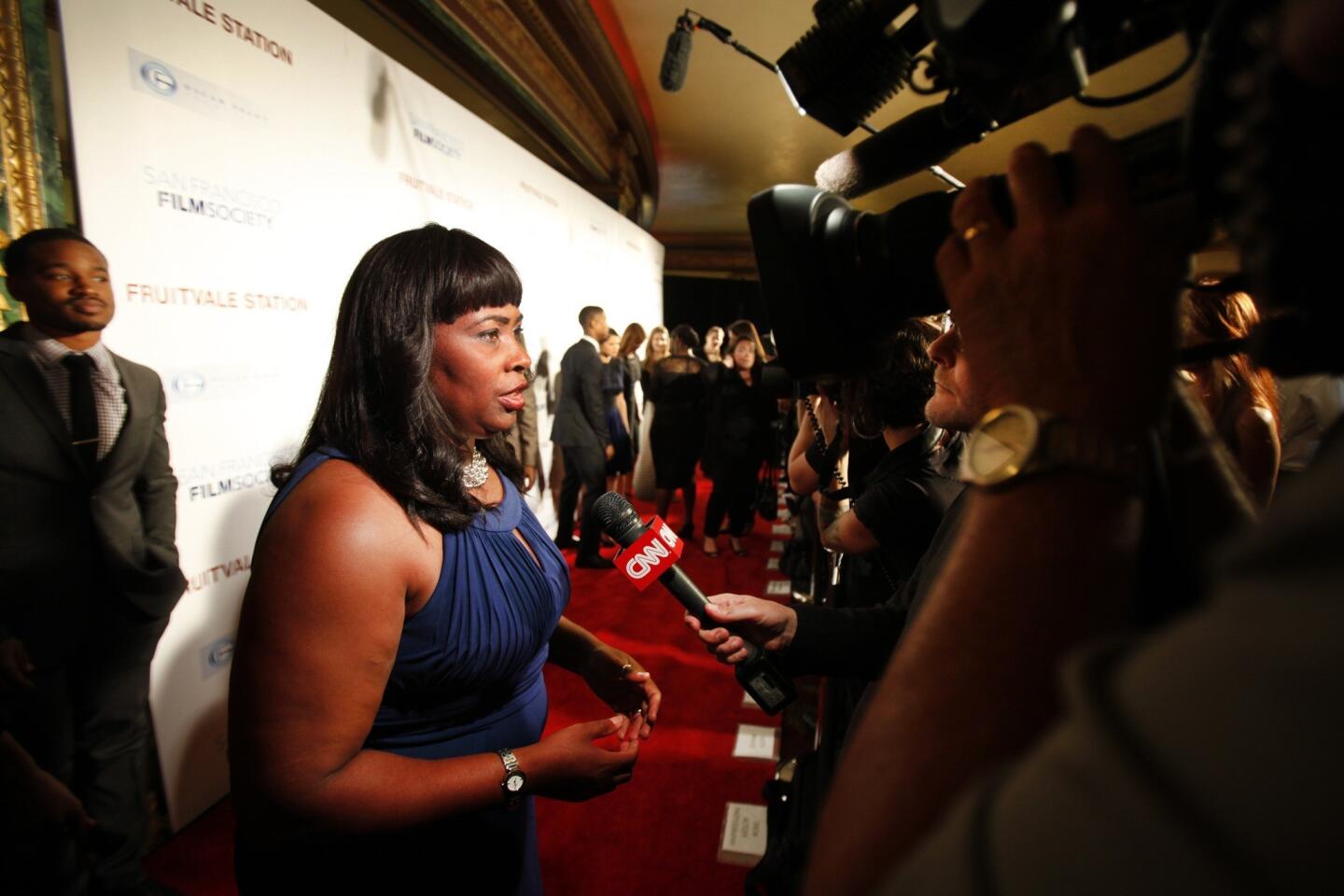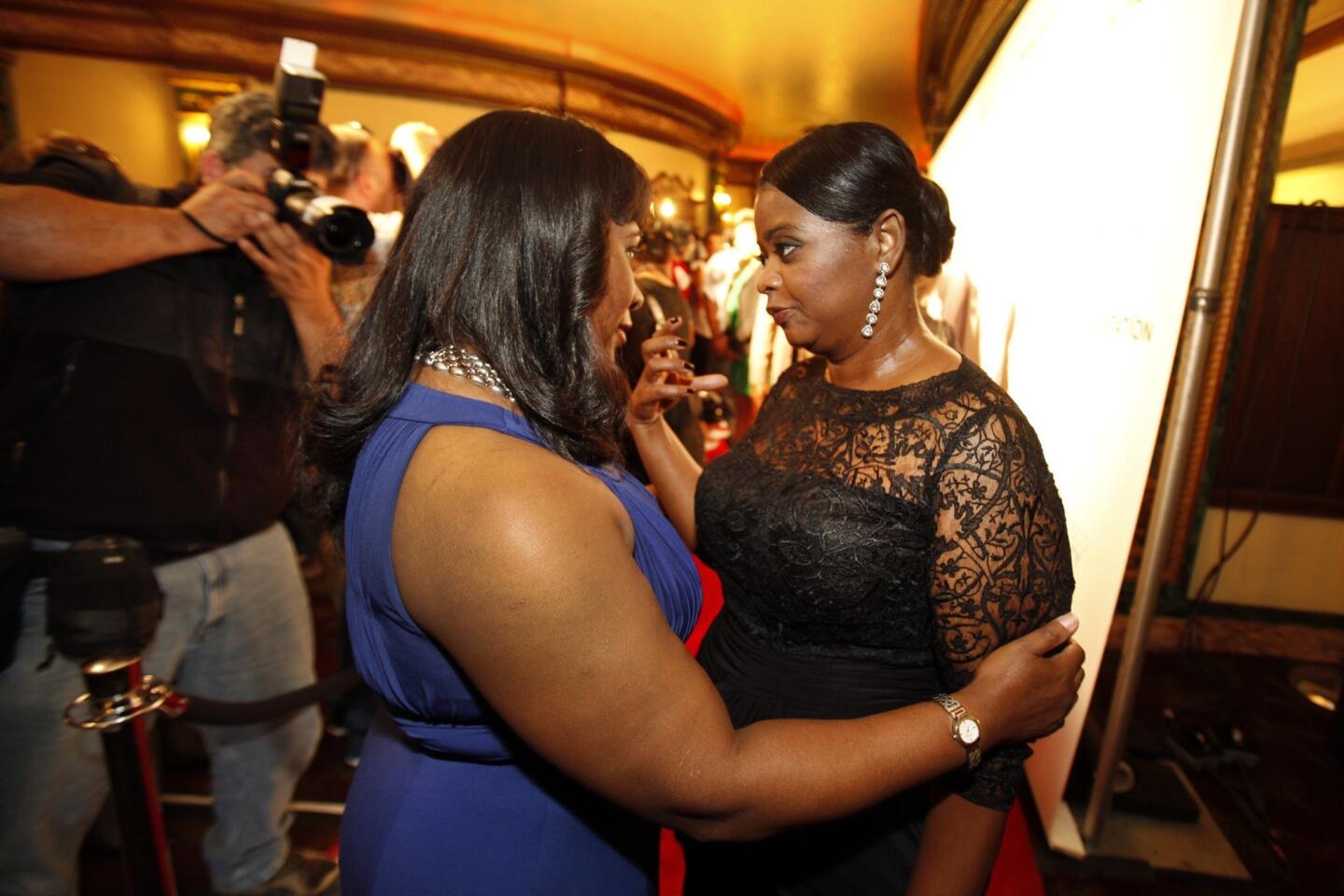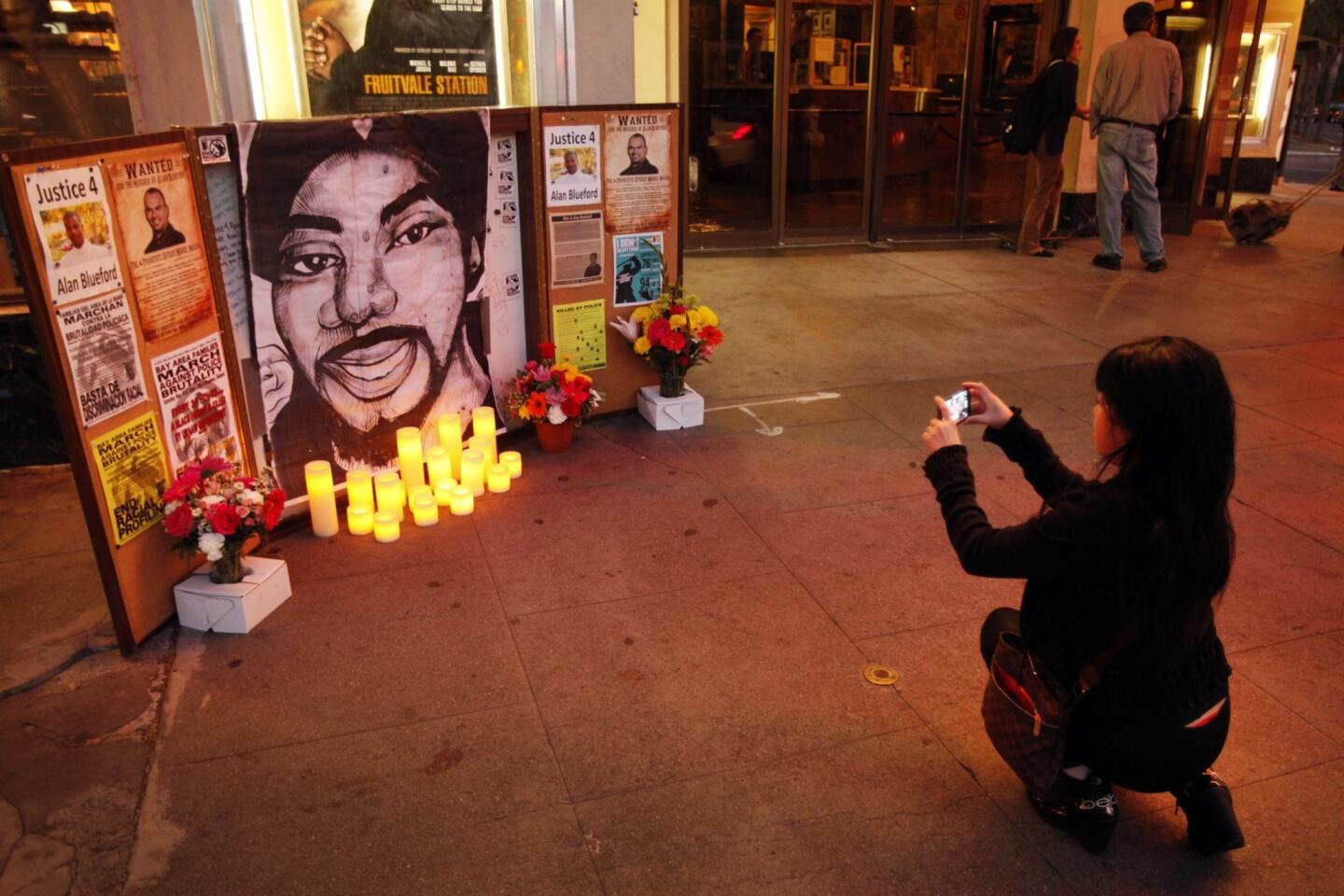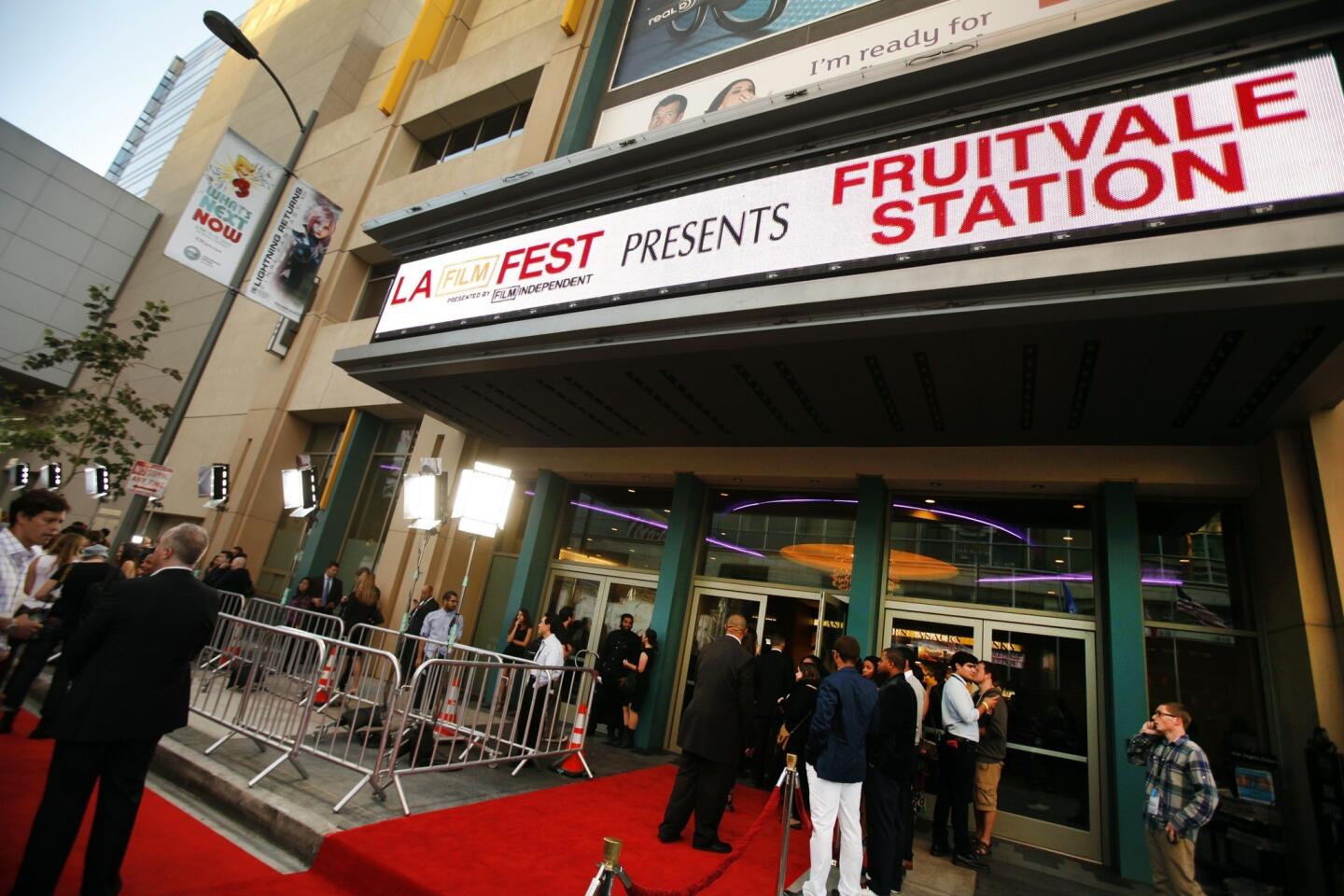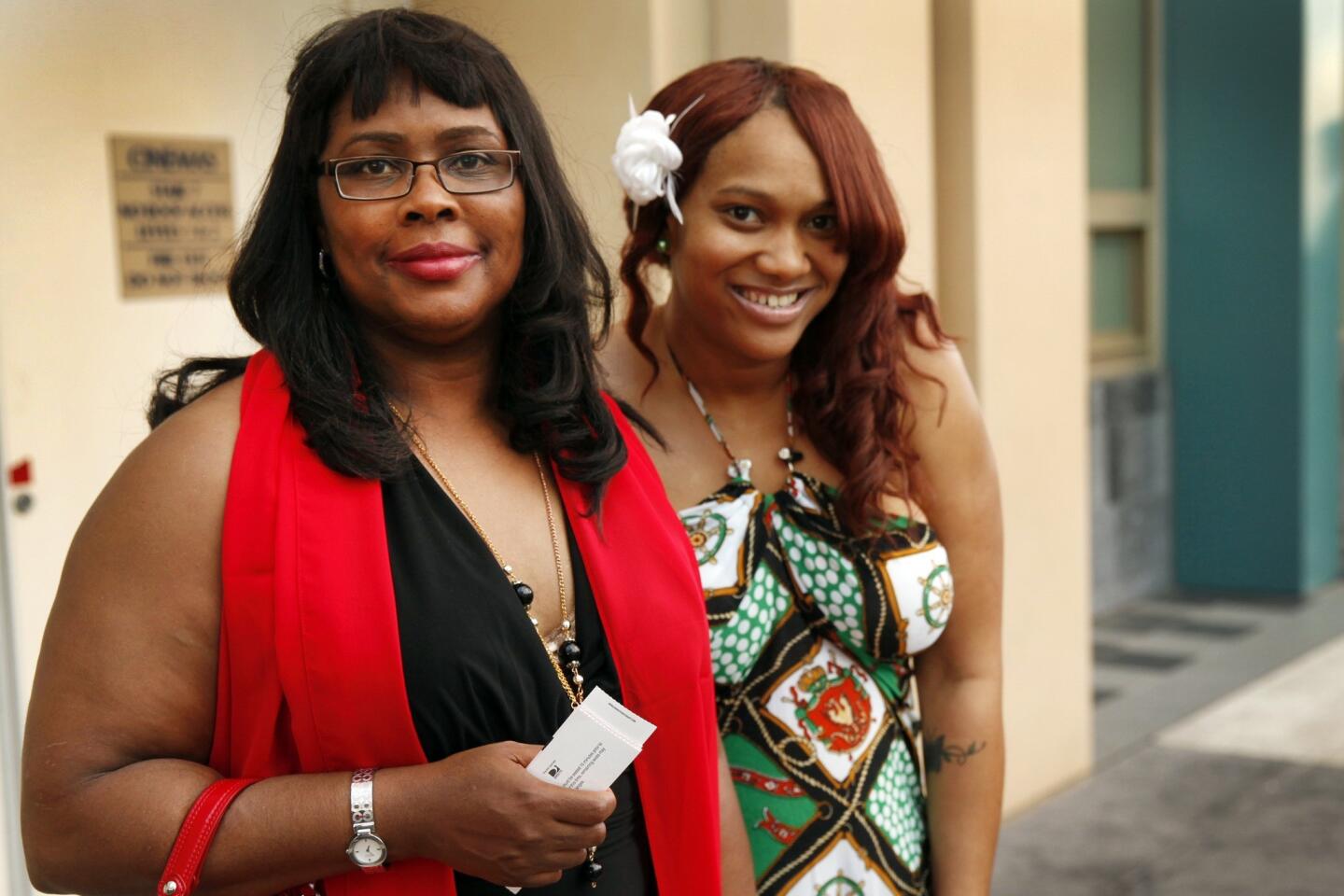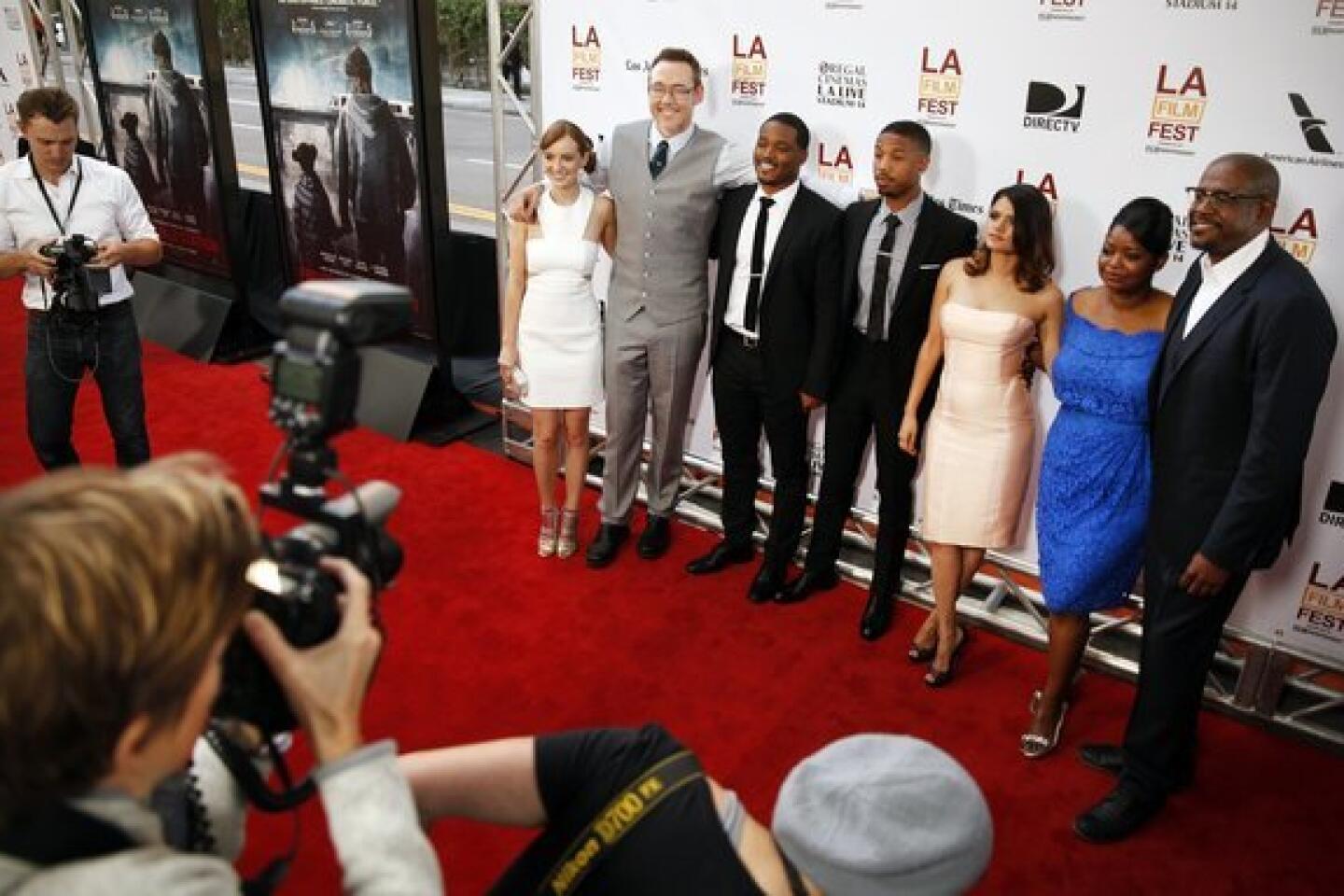Weinstein Co. uses social justice campaign to promote ‘Fruitvale Station’
The Weinstein Co. is no stranger to take-no-prisoners movie marketing campaigns. The independent studio’s promotional efforts are legendary in Hollywood, where it has pulled out all the stops to land Oscar wins for such films as “The Artist” and “The King’s Speech,” racking up big box-office for any number of little films in the process.
So when it came to marketing the drama “Fruitvale Station,” the Weinstein Co. did what it does best: Ride the zeitgeist.
At a moment of national reckoning, when emotional demonstrations are being staged across the country externalizing the debate about race and equality in 21st century America, the studio is employing a marketing campaign predicated on generating a dialogue about social injustice to give the film a promo push.
ON LOCATION: Where the cameras roll
The winner of the Sundance Film Festival’s grand jury prize this year, “Fruitvale Station” arrived in theaters in limited release last week just hours before George Zimmerman was acquitted on second-degree murder and manslaughter charges for the shooting of unarmed African American teenager Trayvon Martin. The drama chronicles the last day in the life of Oscar Grant III, an African American Oakland resident who was was shot and killed by a transit policeman who mistakenly reached for his gun instead of a taser on New Year’s Eve 2009. Grant was also unarmed.
On Sunday, Erik Lomis, the studio’s head of theatrical distribution, told The Times that the Weinstein Co. was not looking to cash in on the synergy between real-life and on-screen events. “It’s not going to hurt us – but we’re not saying, ‘If you’re upset about the Zimmerman case, go see this,” Lomis said.
The Weinstein Co.’s Instagram account, however, tells a different story. Accompanying an image from the film -- four young African American characters being detained by a white police officer -- a tagline reads: “Make a difference by engaging in meaningful discussions about how we treat one another and how we can overcome prejudice. #IAMFRUITVALESTATION”
Another Instagram features co-star Octavia Spencer who is quoted as saying, “Being a part of Fruitvale Station, you really want to be the impetus of much needed discourse about our humanity and how we interact with each other.”
PHOTOS: Hollywood backlot moments
The film’s website highlight’s the Weinstein Co.’s “I am__” campaign which encourages visitors to share stories of overcoming acts of prejudice, bullying, social injustice or mistreatment and submit photos and artworks representing those experiences. The campaign is “an opportunity to create an expressive, nonjudgmental community for love, healing and equality,” the website explains.
In limited release in seven cities since July 12 (before it expands to 18 new cities Friday and platforms across the country later this month), “Fruitvale Station” got off to a strong start last weekend, claiming the third-highest opening of the year for a film in limited release. To date, the micro-budgeted movie has tallied $430,000 at the box office.
On Saturday in Los Angeles, “Fruitvale Station” star Michael B. Jordan told a screening audience he was devastated by the ruling and considered skipping the screening out of grief and rage.
“My heart hurts so bad right now,” he said. “I wasn’t going to come after I found out about George Zimmerman getting acquitted. It broke me up. That’s why I think this film means so much, because it keeps happening again and again. [We must] learn how to treat each other better and stop judging one another just because we’re different. It’s not just a black-and-white thing. It’s a people thing.”
On Tuesday, Jordan and director Ryan Coogler appeared on “The Tavis Smiley Show,” where they discussed how the timing of “Fruitvale Station’s” release was a “gift” in its ability to give context to the predicament in which Trayvon Martin found himself.
“Fruitvale Station” is hardly the first feature film to bump up against real-life events that somehow echo on-screen action. In 2007, the release of Ben Affleck’s directorial debut “Gone Baby Gone” – about a Boston cop investigating the abduction of a 4-year old girl -- was pushed back a year out of sensitivity to parallels with a case making news at the time: the disappearance of Madeleine McCann, a British 3-year old who disappeared while on vacation with her family in Portugal. Likewise, the 2002 thriller “Phone Booth” provided an eerie art-immitating-life counterpart to real events. The film -- which follows a man (Colin Farrell) who enters a telephone booth, is told he’s in a sniper’s sights and will be killed if he exits – arrived in theaters at a time when an unknown sniper was terrorizing the Washington area, killing 10 people and injuring three in a spate of unprovoked shootings.
On Saturday, while protesters took to the streets in nearby Oakland to protest Zimmerman’s acquittal, Weinstein Co. emissaries handed out business cards to moviegoers leaving a screening of “Fruitvale Station” at San Francisco’s AMC Metreon 16.
On one side was a photo still from “Fruitvale Station” of Jordan and actress Ariana Neal (who plays his daughter in the film) and on the other display copy read: “Commit to end social injustice in the name of Oscar Grant,” directing viewers to the movie’s website.
Times staff writer Amy Kaufman contributed reporting to this blog post.
ALSO:
Emma Roberts arrested: Will it affect ‘We’re the Millers’?
Julian Assange’s ‘Fifth Estate’ trailer debuts
‘Turbo’ is a racing snail from the streets of the San Fernando Valley
Twitter: @__chrislee
More to Read
Only good movies
Get the Indie Focus newsletter, Mark Olsen's weekly guide to the world of cinema.
You may occasionally receive promotional content from the Los Angeles Times.
